Seeing tiny dead bugs in the fridge can be a horrifying experience. The first thing to do is clean your device, but it is often only a short-term solution. Bugs will almost certainly return without solving the primary problem that attracts them inside.
In most cases, it is only about a few insect species, so you should identify them, find a reason for their presence in that cold place, and estimate possible risks. Finally, it is vital to permanently eliminate these creatures from the refrigerator and get rid of the odor they leave behind.
What Dead Bug Types Can You Find in the Fridge?
The number of insect species you can find inside your fridge is limited. Therefore, you can recognize only a few getting inside by accident or finding their way through the gaps or pipes.
Bug types in the fridge |
||
| Type | Length | Color |
| Gnats | 0.04 to 0.5 inches (1 to 12.5 mm) | Tan, yellowish, dark brown |
| Fruit flies | 0.12 inches (3 mm) | Tan, yellow-brown |
| Drain flies | 0.16 inches (4 mm) | Dark brown |
| House flies | 0.25 inches (6.5 mm) | Dull gray |
| Carpenter ants | 0.5 to 0.8 inches (12.5 – 20 mm) | Black |
| Roaches | 0.5 to 2 inches | Reddish-brown, brownish-black |
Tiny dead bugs may seem only an esthetic issue, and many consider them harmless. Unfortunately, some species carry various diseases, or their feces may contaminate food, so you should be careful.
The best way to prevent food poisoning or even more severe health issues is to eliminate them immediately. The most common bugs you can find in your fridge are:
1. Dead Gnats
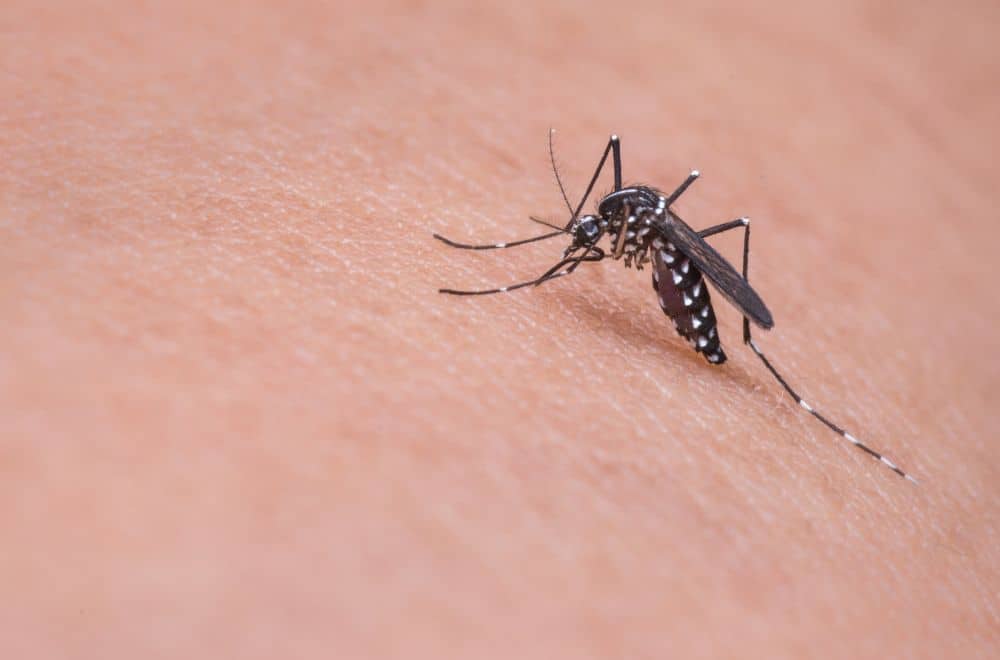
These insects live approximately a week and sometimes end their lifespan inside your fridge. In most cases, they occur after you bring them on vegetables.
Additionally, organic waste in the kitchen and light inside the device attract these insects. They can come inside through poorly sealed refrigerator gaskets or a water dispenser.
Once they come in, it is unlikely to leave the fridge since they are weak fliers. They will feed on your food, contaminating it.
2. Dead Fruit flies
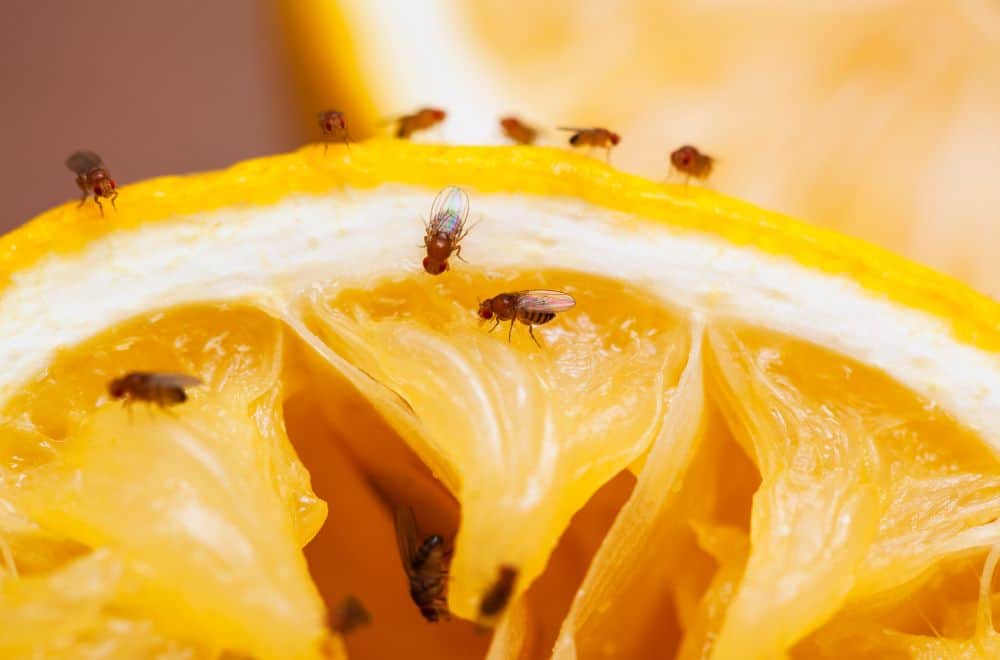
Keeping fresh fruits inside the refrigerator will surely attract Fruit flies. You can see dead insects inside, but it is more likely they survive and keep flying in the device.
Since these bugs prefer dirty and unwashed fruits and veggies, washing them before putting them in the fridge is necessary. You can save your food by placing a jar filled with white vinegar inside to work as a repellent.
3. Dead Drain flies
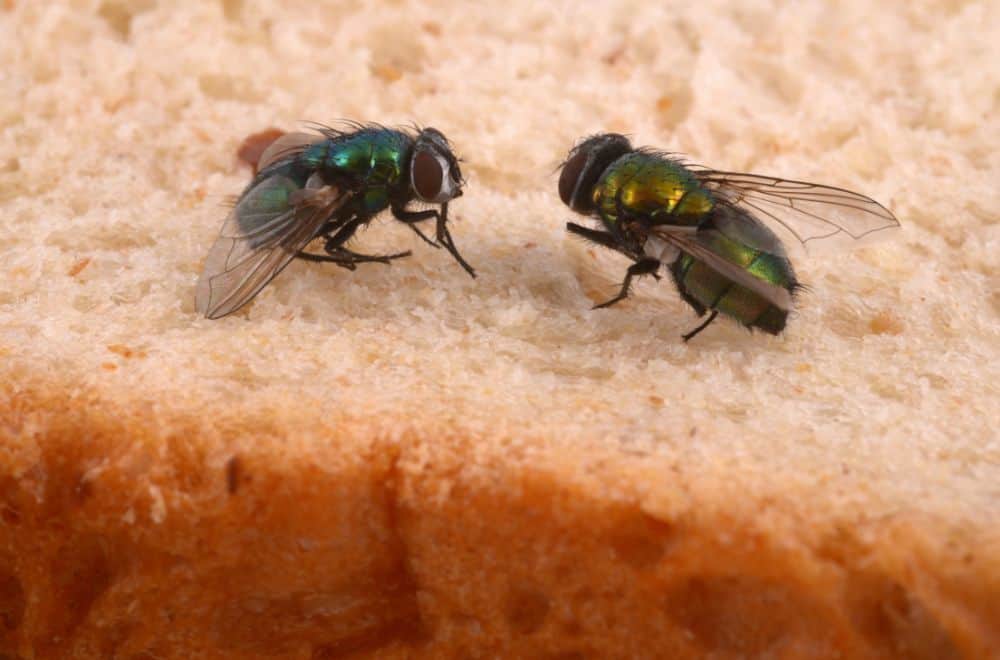
Drain flies are tiny greyish, moth-like insects that appear in homes when drains are clogged. Once they reach your kitchen, they will quickly find a condensation pan at the fridge’s bottom.
Since it collects the water from the melting ice that smells of food, this place will attract drain flies looking for a damp waste to lay eggs on. From that place, insects quickly enter the fridge and freeze there to death, often on your stored food.
4. Dead House flies
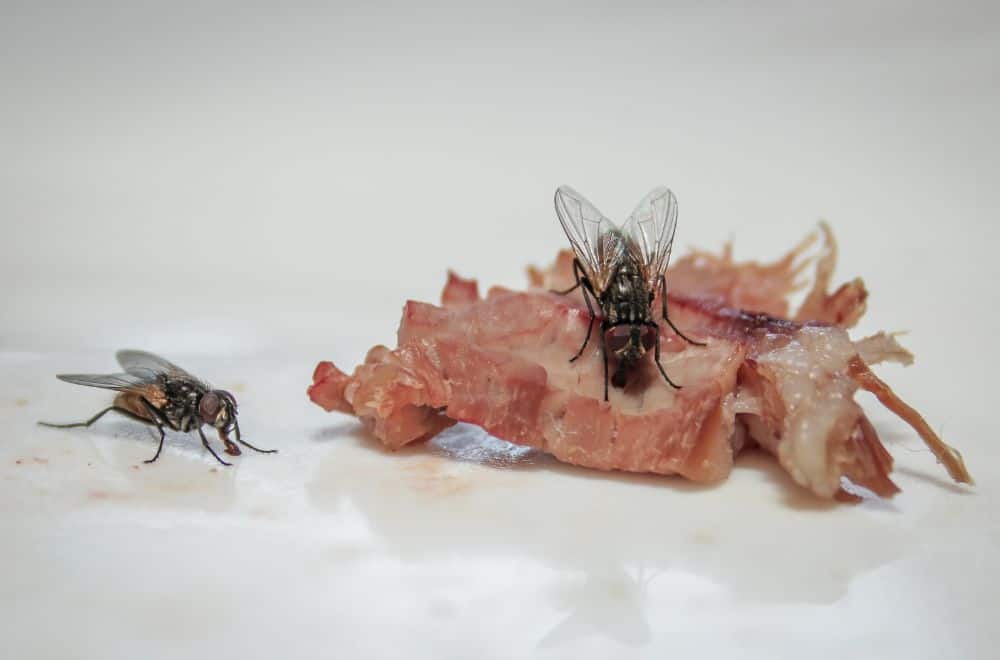
You can see flies inside your home during hot summer days, but some can accidentally enter your fridge. Luckily, they can’t lay eggs inside because of low temperatures, and this cool place will slow them down.
In rare cases, they can die inside, making a sure sign that your food is compromised. These insects typically contaminate food while crossing over it.
5. Dead Ants
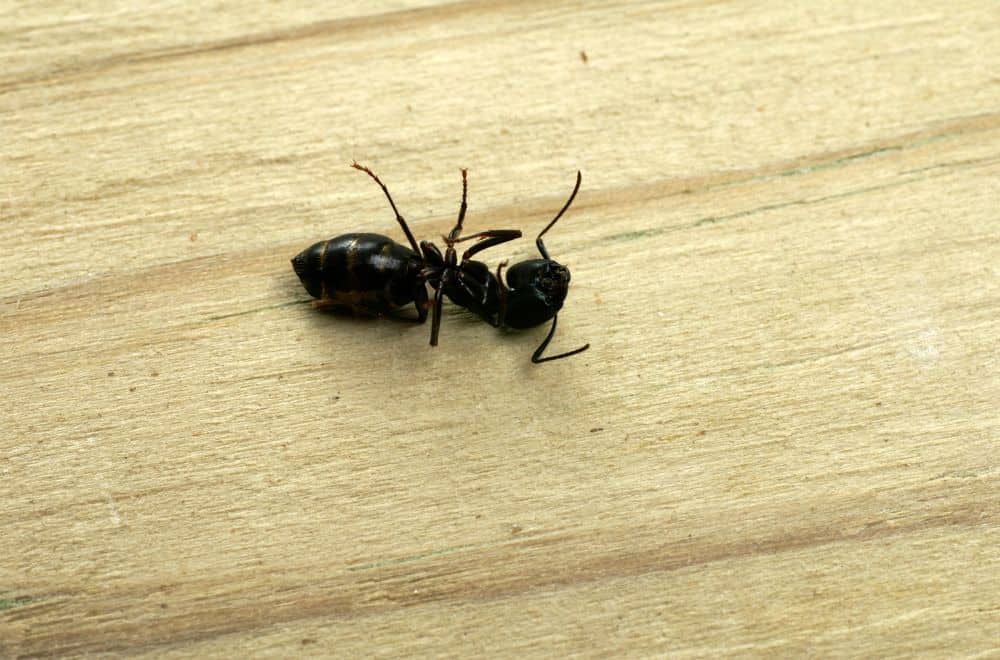
Since ants can’t stand low temperatures, you can expect to see these creatures dead inside your fridge after entering there. In most cases, it is about common carpenter ants looking for meat or sweets.
6. Dead Roaches (often baby cockroaches)

Roaches are intelligent insects that can quickly find their way to your fridge. As expected, finding dead cockroaches inside the refrigerator is a significant complication.
Cross-contaminating the stored food is only a result of their presence in the house. Since Roaches avoid too cold places, their occurrence inside the fridge looking for food indicates that their number in your home is excessively high.
In most cases, baby bugs sneak inside the fridge through tiny gaps existing in old devices’ undersides. They can survive at low temperatures for a while, so some of finding bugs will still be alive and crawl around.
Ways for Tiny Dead Bugs to Get Inside the Fridge

There are two primary ways for bugs to enter the refrigerator. You can bring their eggs or larvae with groceries, or adults enter your fridge while looking for food.
If there is rotten fruit and vegetables or raw meat, their smell will immediately attract these creatures. Sometimes, the only way to become aware of their presence is to find dead bugs or droppings inside.
Believe it or not, you are a common source of bugs. They will enter your fridge after the following:
Bringing bugs with groceries – Food from stores and supermarkets is often infected with bugs. Once you buy a product and place it inside your fridge, insects start crawling and sometimes laying eggs when the temperature is not too low.
Leaving bags open – Most of these bugs enjoy consuming dry and processed foods, and you can find them in incorrectly stored food. They can also enter an open bag of rice, grains, and cereals or a potato package.
In other cases, the reason is an unmaintained and malfunctioning refrigerator. For instance, you can face a few problems, such as:
Faulty door seal – In this case, bugs find tiny gaps in an old fridge and use them as an entrance.
Insufficiently cool fridge – When the temperature inside the refrigerator is higher than required, it becomes an ideal place for laying eggs.
Opened fridge door – When you keep the fridge door open for a long time or forget to close it correctly, insects can quickly enter inside, although you are unaware of it.
The oversized basket – When this part is too sizable, it will prevent the fridge door from closing. Be aware that even the tiniest opening is enough for these small creatures to enter.
Dirty fridge – When your refrigerator is stinky and dirty, you can expect bugs to come inside because they like such an environment.
How to Get Rid of Tiny Dead Bugs In the Fridge?

The first step when finding dead bugs inside the refrigerator is to check all compartments thoroughly. Your goal is to ensure there are no hidden bugs and their larvae. The next thing to do is to throw the food away, unplug your fridge, and clean the device and its surrounding. Let’s take a look.
1. Remove food
The best option is to remove and throw food from the fridge away. Otherwise, eating ingredients contaminated with bugs can jeopardize your health. There is no need to eliminate canned and tightly sealed meals.
2. Remove and clean drawers, trays, and shelves
Remove all shelves, trays, and drawers before cleaning them thoroughly with warm soapy water. Then, wash the fridge inside and dry it with paper towels and a clean cloth, or let it air dry. Disinfect all pieces before plugging the device.
It is probably a perfect moment to change the fridge gaskets to prevent bugs from future entering.
3. Restock the fridge and freezer
After removing spoiled, stale, rot, and infected food and cleaning the fridge, it is time to refill it with clean and healthy food. Take a moment to clean packets, jars, and bottles before restocking your device.
4. Keep red wine, white vinegar, or coffee grounds inside the fridge
Sometimes you can miss one or more bugs inside the fridge despite all your efforts. Therefore, you should stop them by keeping an open cup with coffee grounds, white vinegar, or red wine inside.
The strong wine-fruity smell draws insects, while the alcohol kills them when falling inside. On the other hand, white vinegar and coffee grounds will keep them away.
How To Prevent Insects From Entering The Fridge?

The only way to keep bugs away from your fridge is to avoid creating an appealing environment.
1. Clean and vacuum the house
Regular house maintenance like cleaning, brushing, and vacuuming eliminates food leftovers. That will prevent most harmful insects from spending time and laying eggs in your home.
2. Clean the kitchen and pantry
As you know, the kitchen and pantry are primary places for insects to gather. Once they enter this space, they will quickly find a way to your fridge. Only regular cleaning can prevent these horrible creatures from considering these rooms as a home.
3. Clean garbage disposal
It is necessary to regularly clean the garbage disposal in your kitchen, particularly when noticing swarms of flies inside.
4. Store food in tightly sealed containers
Only protected food is safe when bugs enter your fridge, so always keep it inside tightly sealed containers. That way, ingredients will stay fresh for a longer period and out of bug reach and possible contamination.
5. Monitor standing water inside the house
The perfect option is to remove all standing water sources from your home, but it is often impossible. Therefore, you should regularly change the water in flower vases and your pets’ bowls and avoid leaving dirty dishes sitting inside the sink for a long.
6. Place sticky fly traps
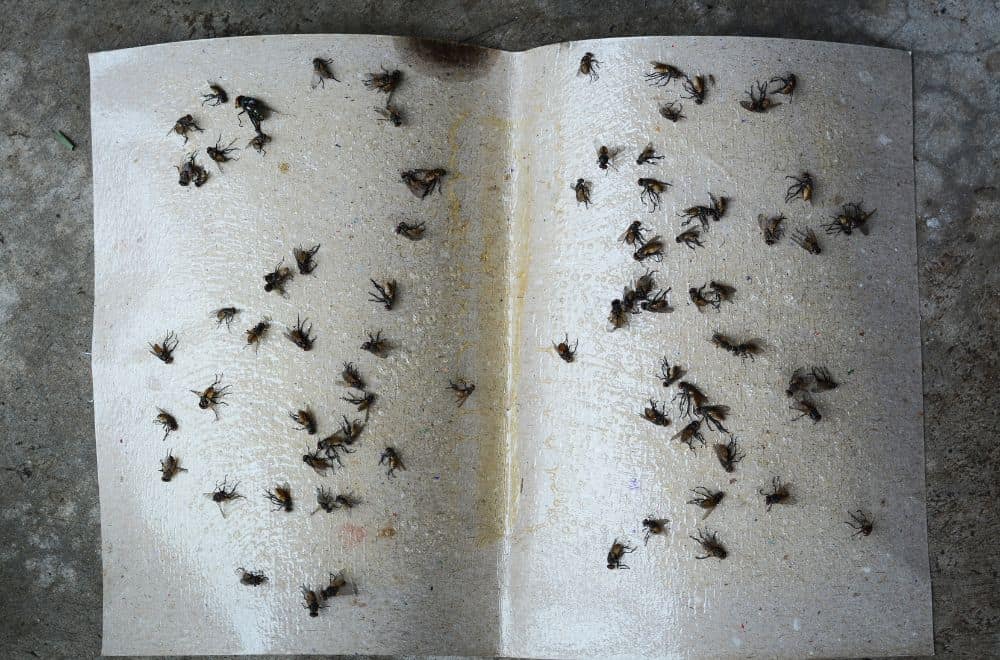
Sticky traps are awful, notably when studded with bugs, but they are an efficient solution to keeping your home free of flies. Attaching one next to the fridge will prevent these insects from sneaking inside during the summer.
7. Unclog and clean the drains
Dirty and unclogged drains often attract bugs, mainly flies and roaches, so their maintenance is vital. One of the most affordable and efficient methods includes white vinegar and baking soda.
Mix these ingredients and pour them down the drain. After letting it sit for approximately half an hour, you can rinse them with water.
Another option is to pour bleach into the drains occasionally. Since it is corrosive and damage pipes, avoid using this method too often.
8. Clean your garden and yard
Cleaning the yard or garden and removing everything that attracts harmful bugs can prevent their entry into your home and, consequently, into the fridge.
Dry moist areas and existing puddles when possible to prevent insects from laying larvae. Then, remove organic waste, such as broken wood poles and boards, rotting mulch beds, and rotten foliage. If you find larvae, spray them with a salty water-vinegar solution.
9. Install window shields
Installing window shields can solve the problem of flying insects and prevent them from entering your home, particularly during the summer. They are not an ideal solution because the tiniest bugs can pass through, but lowering their number may keep them away from your fridge.
10. Repellents
One of the naturals solutions to prevent insects from entering your fridge and eliminate them once they are already inside is to use strong repellents, such as:
- Neem
Neem is probably the oldest method people use to keep insects away from their kitchens. So, you can use it to prevent them from entering your fridge.
Spread powder neem on the surfaces or make a solution of a bottle of water with one spoon of neem oil and spray the device’s interior. This repellent is safe to use and keeps bugs, primarily cockroaches, far away.
- White vinegar
White vinegar can repel most insects from entering your kitchen, so you can use it to protect your fridge. Mix a glass of water with the same amount of vinegar, pour the solution into a spray bottle, and apply it to the infested region.
- Silica aerogel
Silica aerogel dehydrates bugs by forcing their bodies to lose water. You can apply this material no matter what bug type endangers your fridge.
However, it works best against cockroaches. Mix the silica aerogel with a small amount of sugar in a 3: 1 ratio and apply it inside the fridge.
- Boric acid
This agent kills bugs by dehydrating them. Combine it with some sugar that attracts insects and mix them well. Then, apply the mixture inside your fridge, including existing crevices.
Summary
You can notice tiny dead bugs inside your fridge because it is dirty or has gaps. Inadequately maintained refrigerators emit odor and attract several insect types. Identifying these horrible creatures and finding a proper way to eliminate them is crucial.
